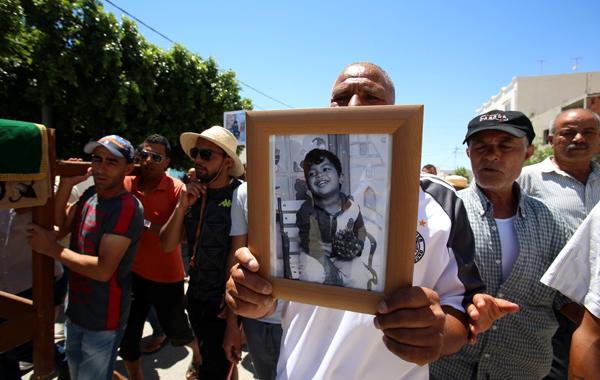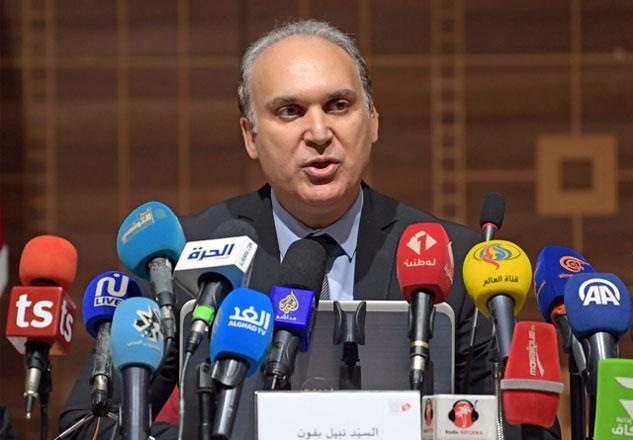You are here
Tunisia’s president proposes relative as PM, critics cry foul
By Reuters - Aug 02,2016 - Last updated at Aug 02,2016
TUNIS — Tunisia's President Beji Caid Essebsi has proposed a junior minister who is a family member as his candidate to replace sacked prime minister Habib Essid, politicians said on Tuesday, drawing accusations of nepotism from the opposition.
Critics in the opposition and Essebsi's own Nidaa Tounes Party have in the past accused the president of trying to line up his son to replace him — charges his supporters deny — in a throwback to the regime of autocrat Zine El Abidine Ben Ali.
Opponents said they would protest the choice of Youssef Chahed, and critics on social media posted with the hashtag "keep your relatives at home" in Arabic. Local media and sources close to his party said Chahed is the nephew of Essebsi's son-in-law.
"Essebsi got rid of Essid so he could put in place someone close to him and have them follow orders," said Jilani Hammami, with the opposition Popular Front Party. "This is a step back to when one family ran everything."
Tunisian lawmakers voted on Saturday to dismiss Essid in a no-confidence ballot, clearing the way for a new government of unity that Essebsi wants to push through delayed economic reforms.
During negotiations over the new government, Essebsi put forward Chahed, a senior official in the ruling Nidaa Tounes Party and the minister for local affairs in the outgoing government, said Issam Chebbi, a party official.
Chebbi said negotiations will continue on Wednesday in Carthage presidential palace and parties will give their responses about the proposal. Essebsi has until August 10 to name a new premier.
Essebsi is already facing widespread criticism from the opponents over what some see as his attempt at a hereditary transfer of power to his son Hafed, the new leader of Nidaa Tounes. That caused a split within the party.
Allies of the president dismiss claims they are looking to place his son into a position of influence.
Chahed, 41, obtained a doctorate in agricultural sciences from France. He is also a researcher and university professor in agricultural economics and has taught at several Tunisian and French universities.
Since its 2011 revolution to oust Zine Al Abidine Ben Ali, Tunisia has emerged as a democracy praised as a model for the region. But militant attacks have tested the government and political infighting has slowed economic progress.
Essebsi has said the country needs a more dynamic government ready to take strong decisions to bring about the liberalisation and cost-cutting required for an overhaul of the North African state’s economy.
Three militant attacks last year — including gun attacks on foreign visitors at a museum and a beach resort — have badly damaged the tourism industry, which makes up around 8 per cent of the economy and is a major source of jobs.
Related Articles
TUNIS — Tunisia's President Beji Caid Essebsi named a little-known technocrat as prime minister on Wednesday after parliament ousted Habib E
TUNIS — Tunisian Prime Minister Habib Essid on Wednesday asked for a parliamentary vote of confidence on his government, officials said.Defe
TUNIS — Tunisian Prime Minister Youssef Chahed will stand in the country’s upcoming presidential election, his party announced on Wednesday,


















